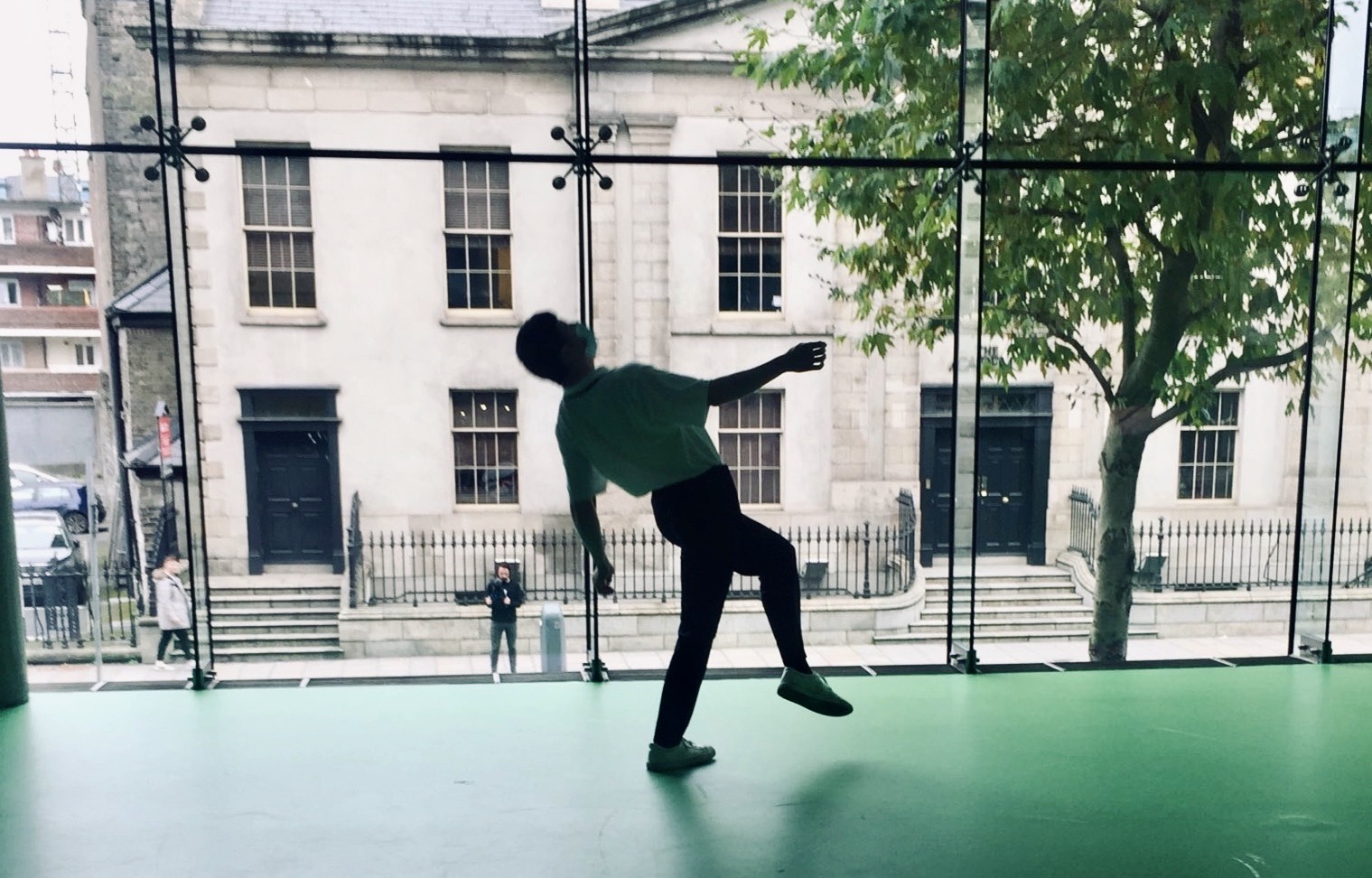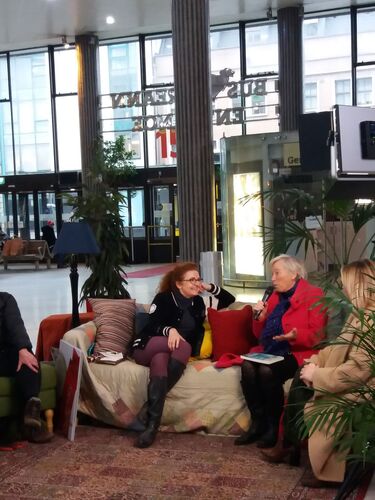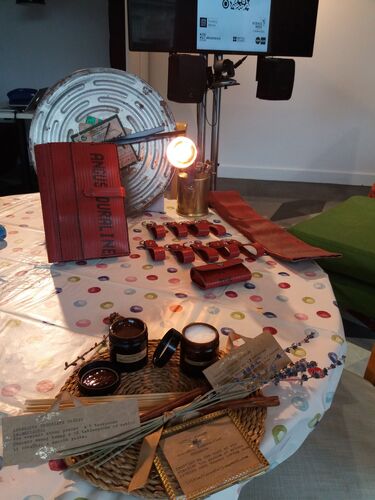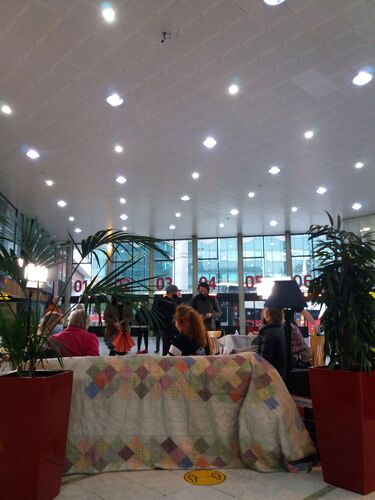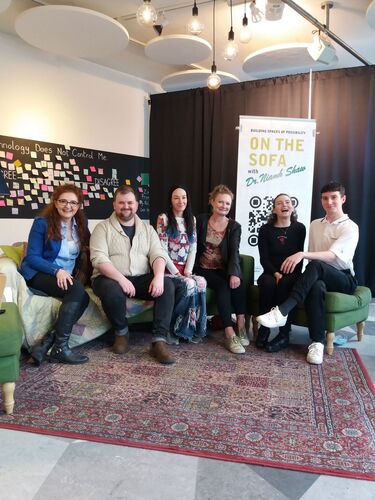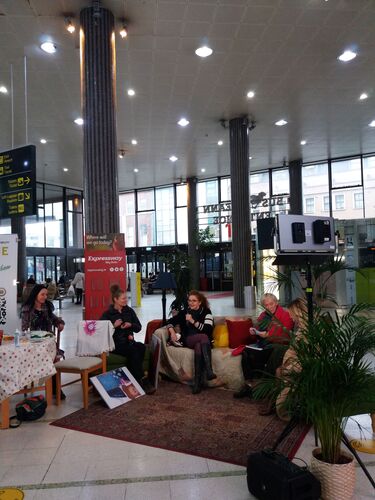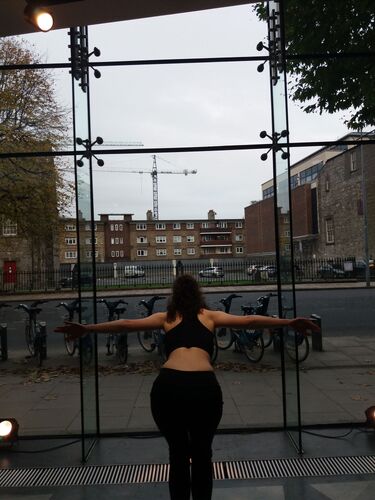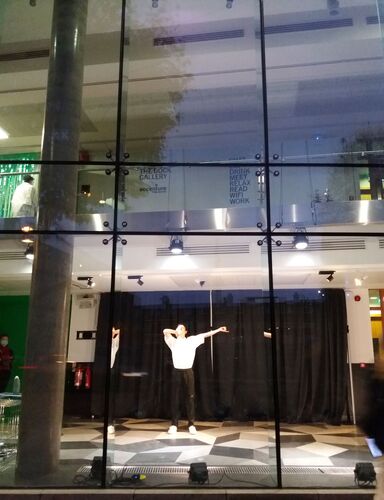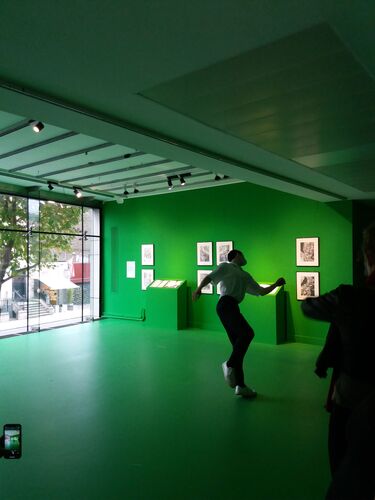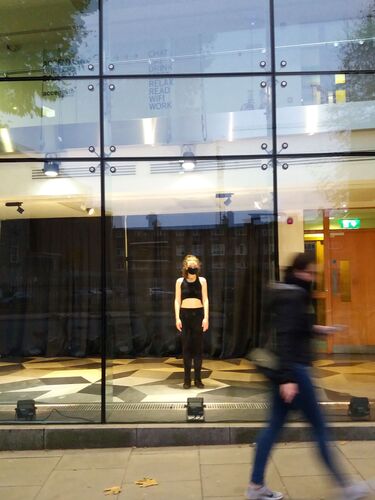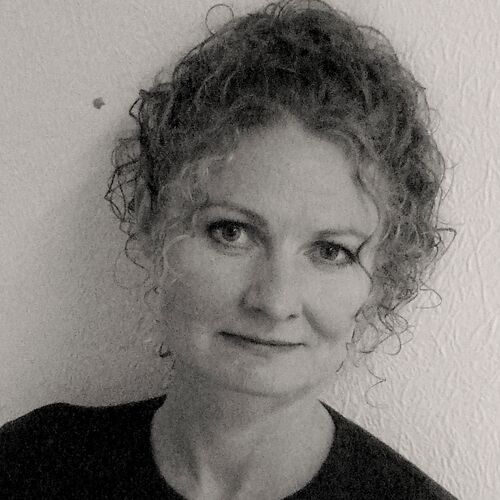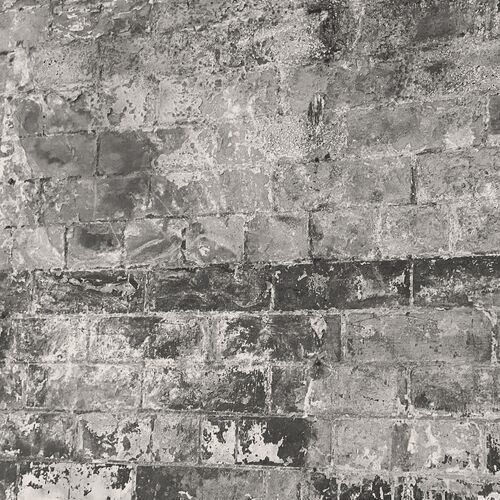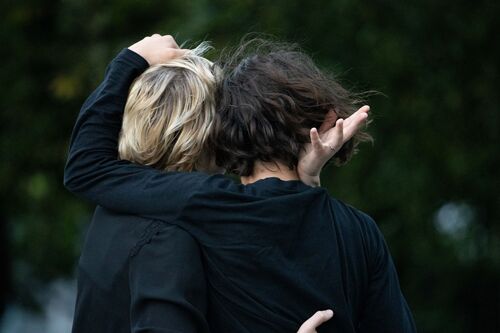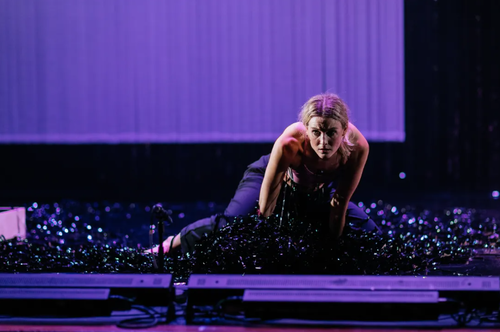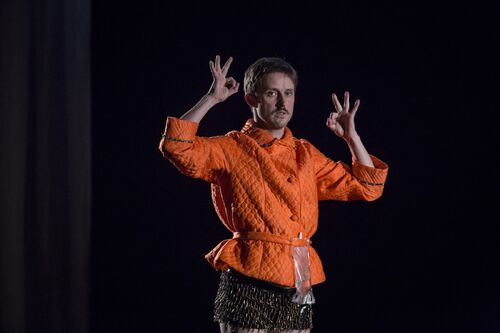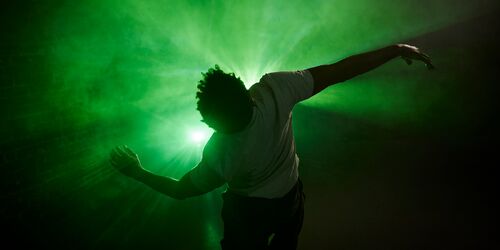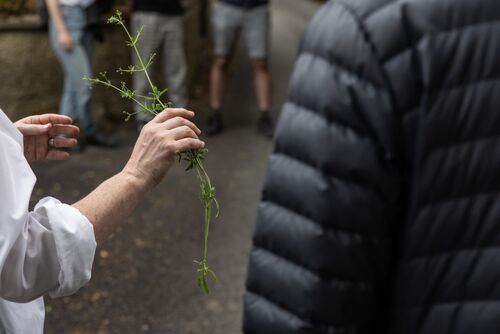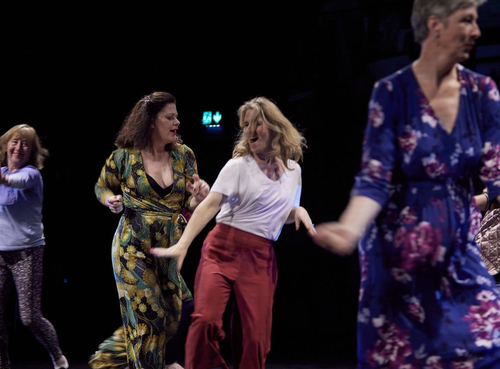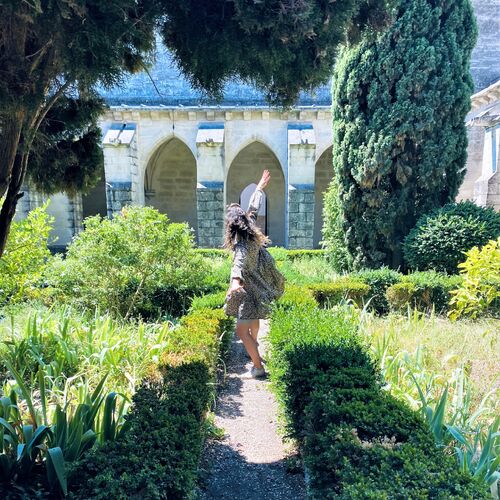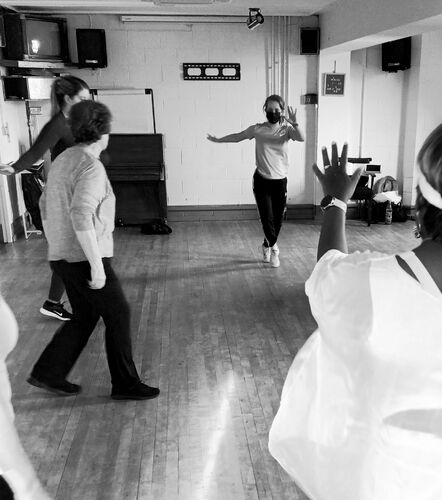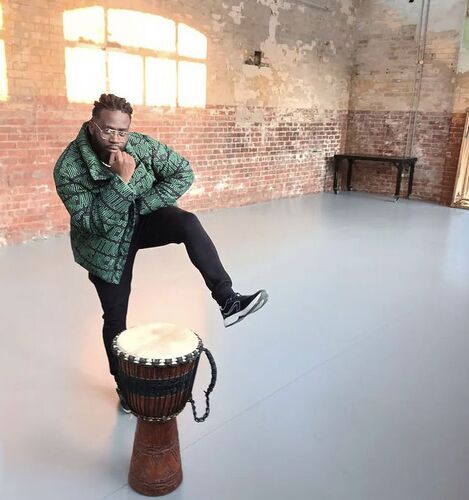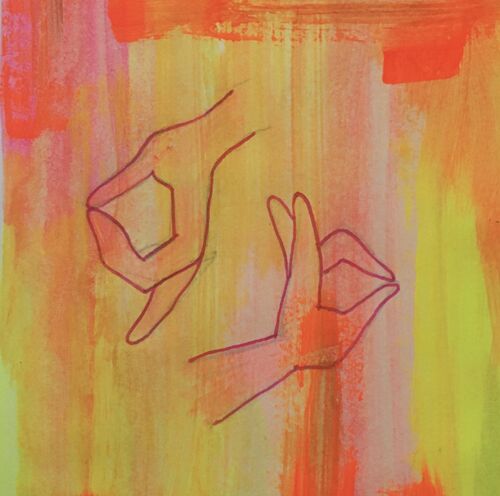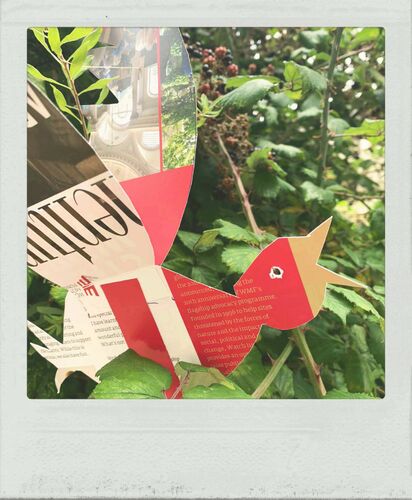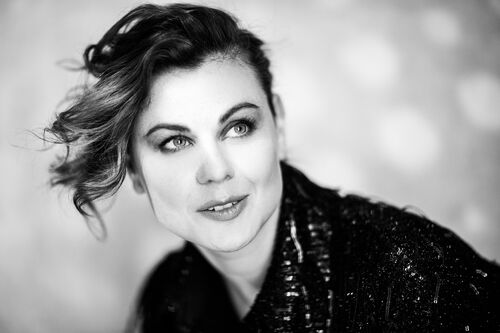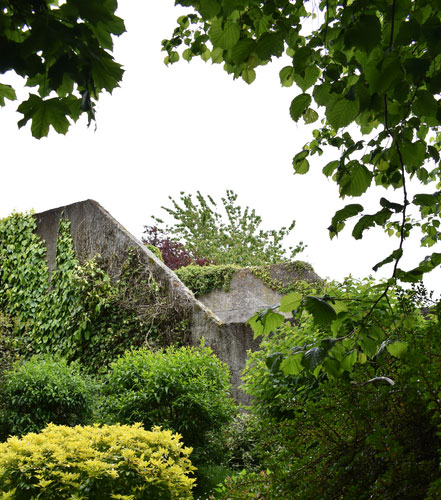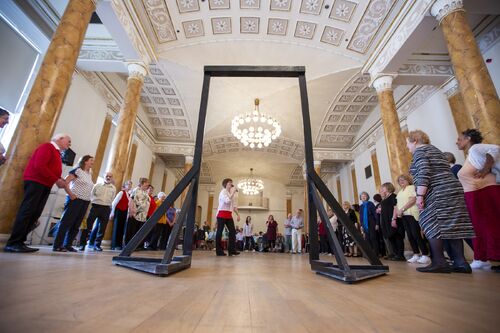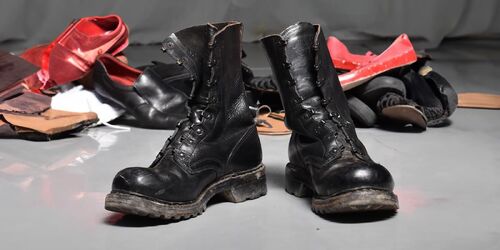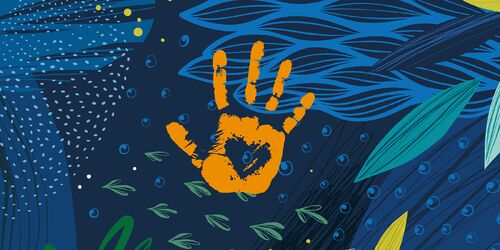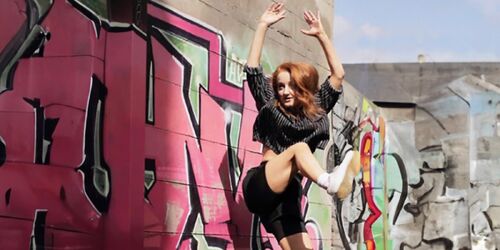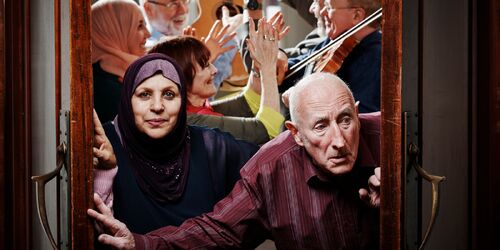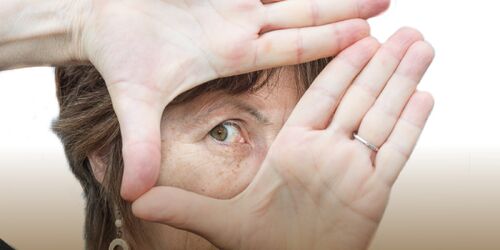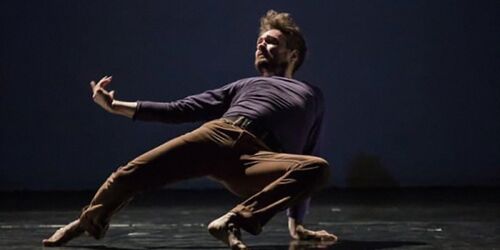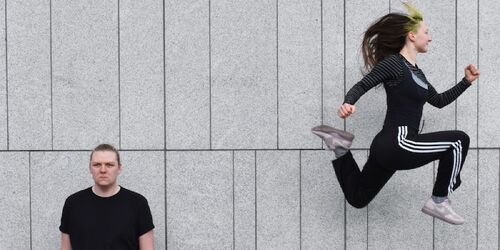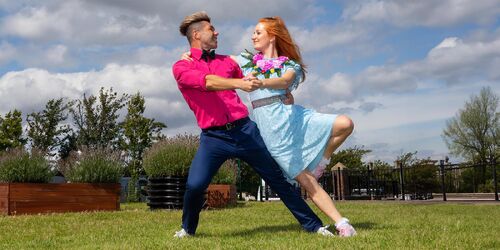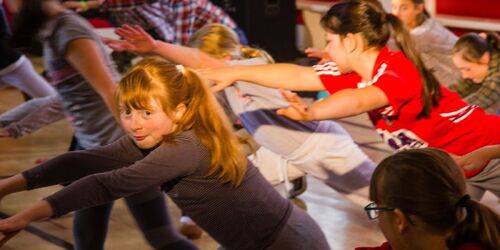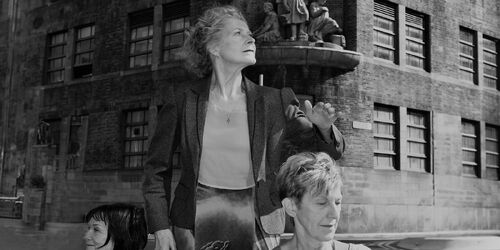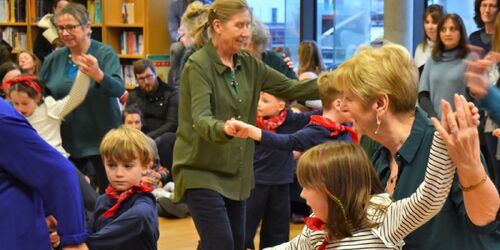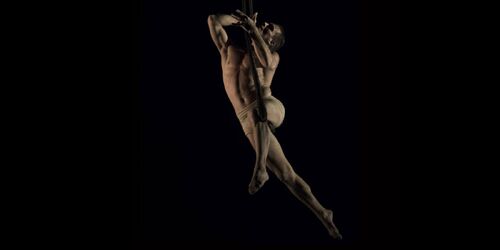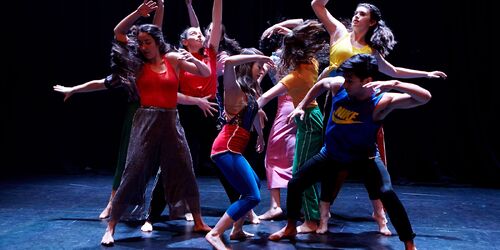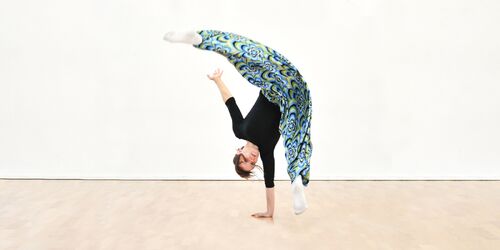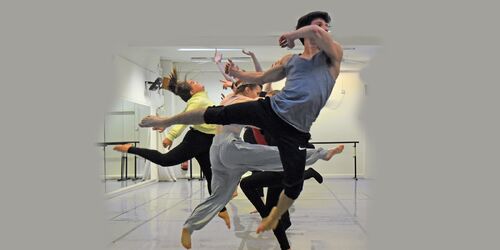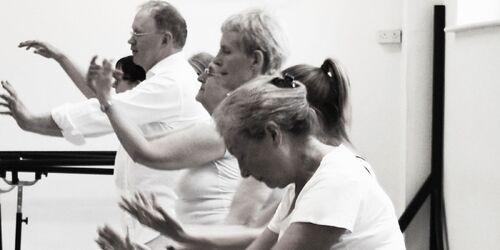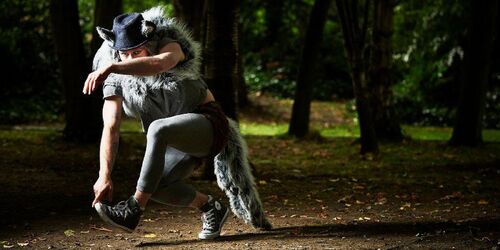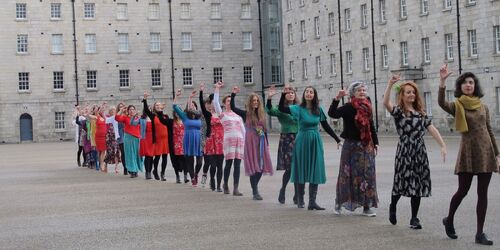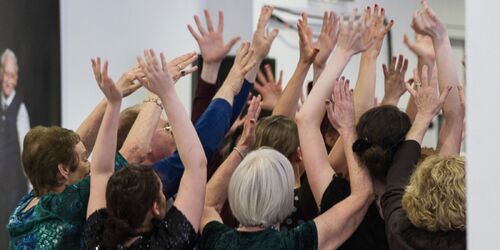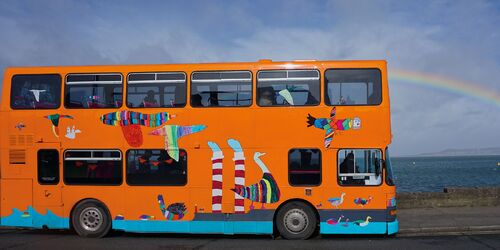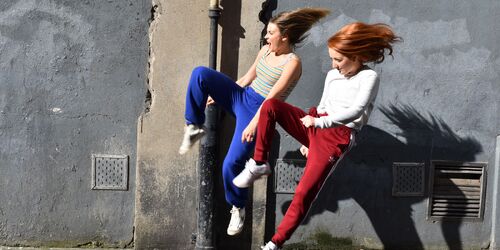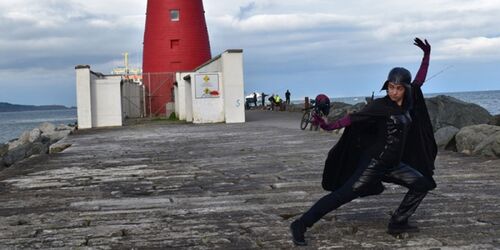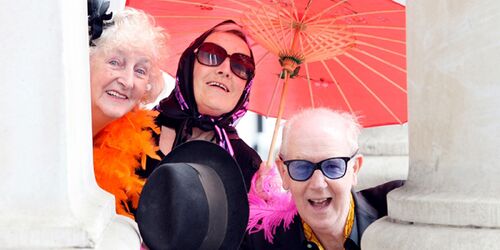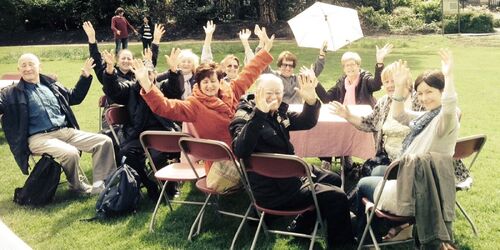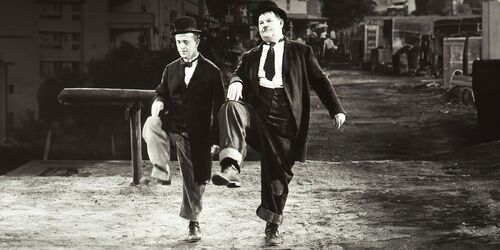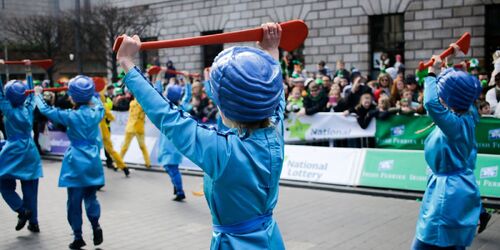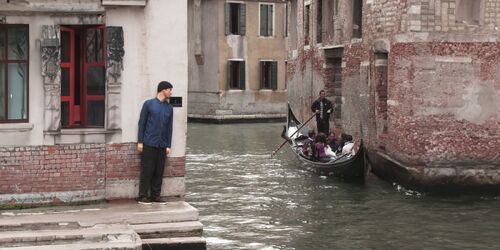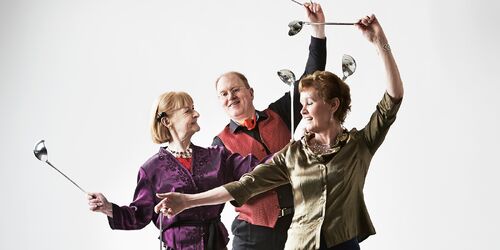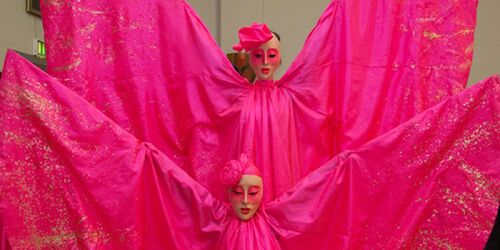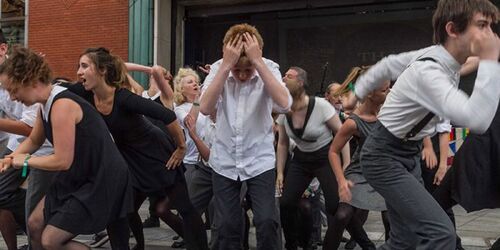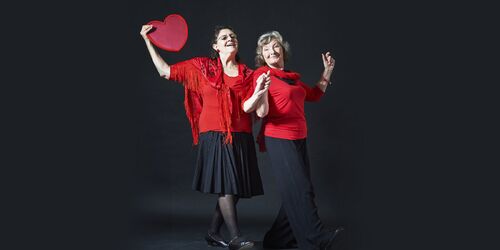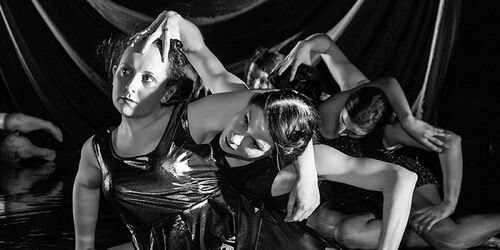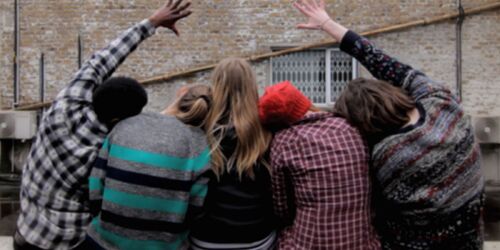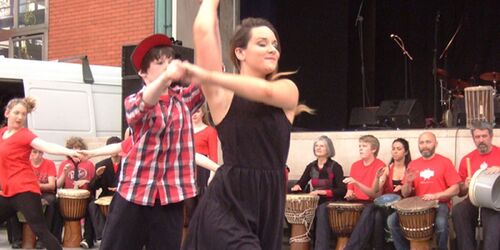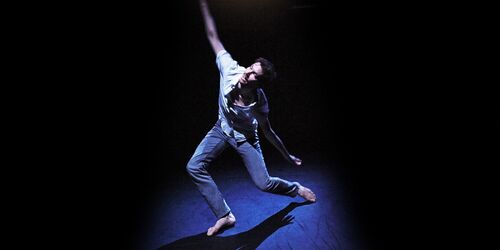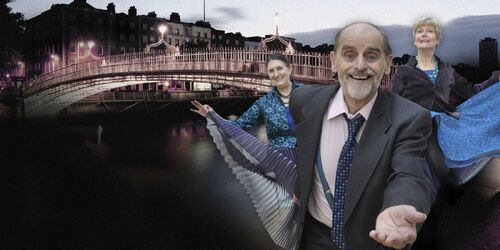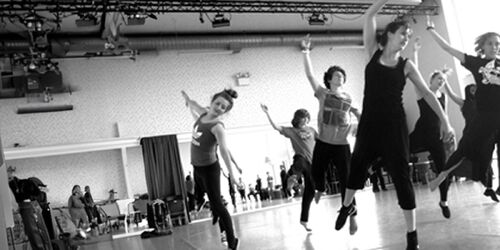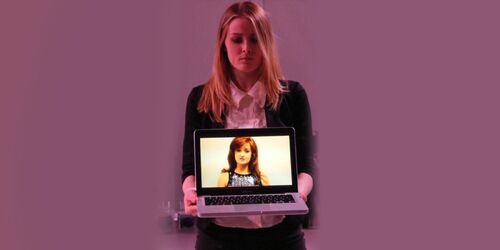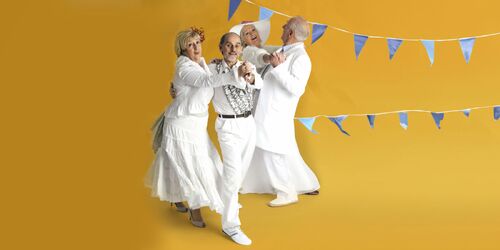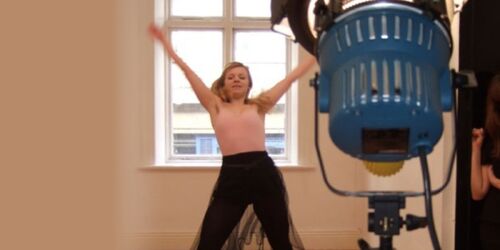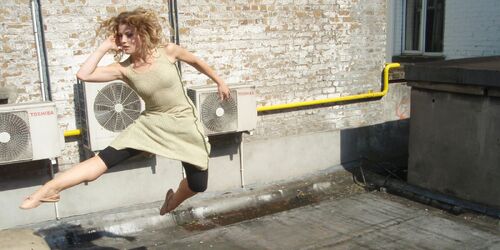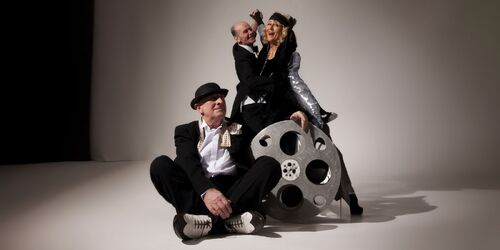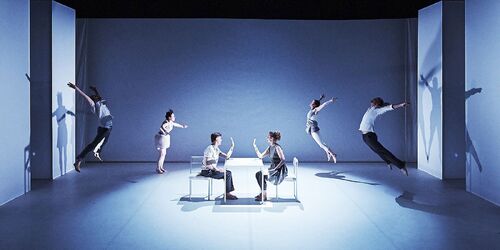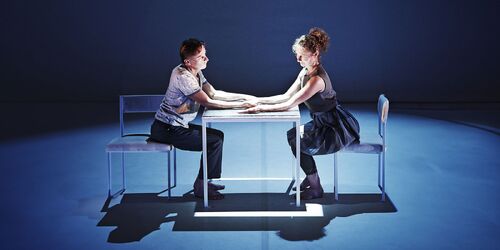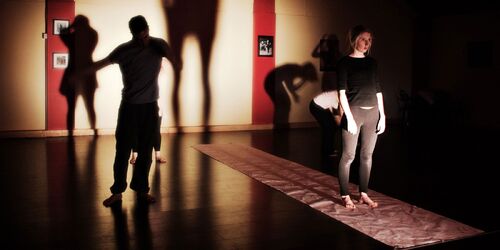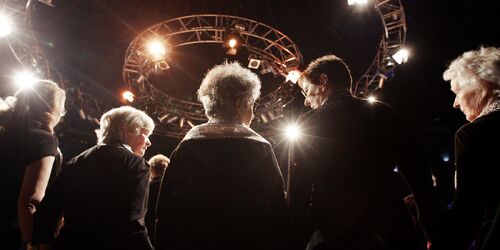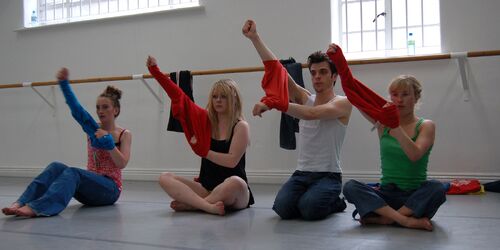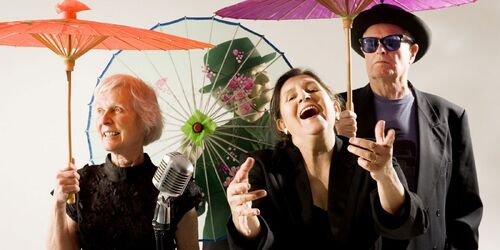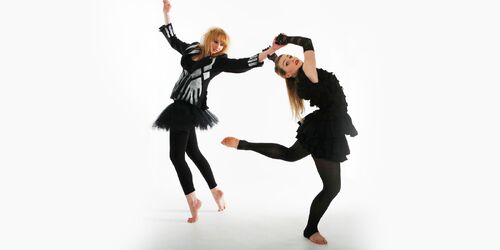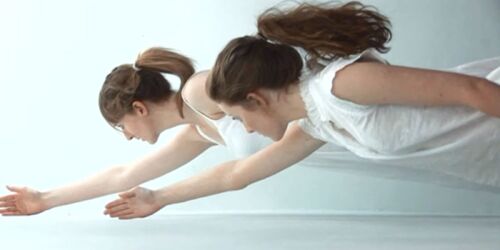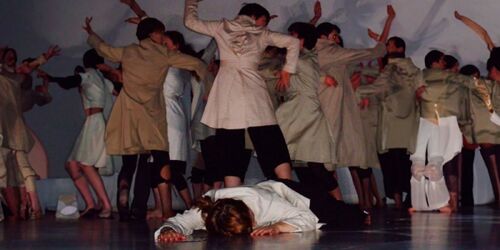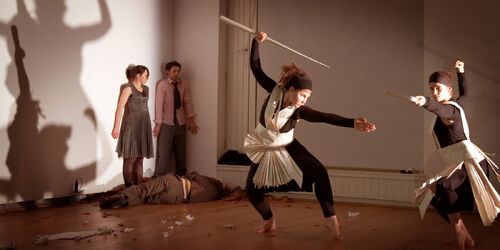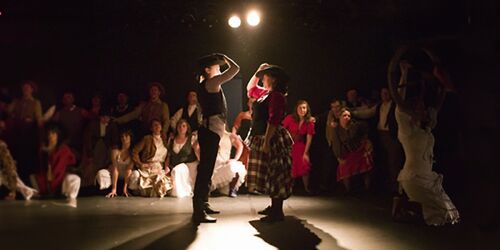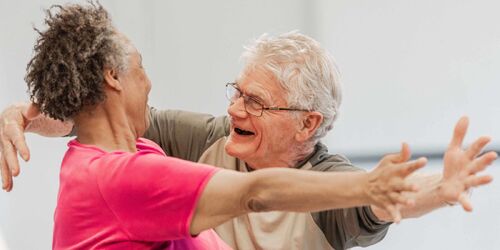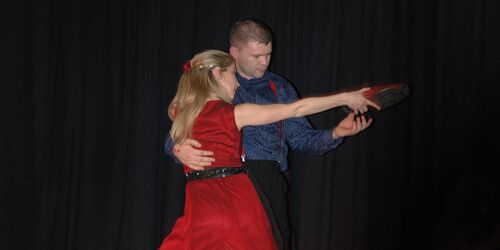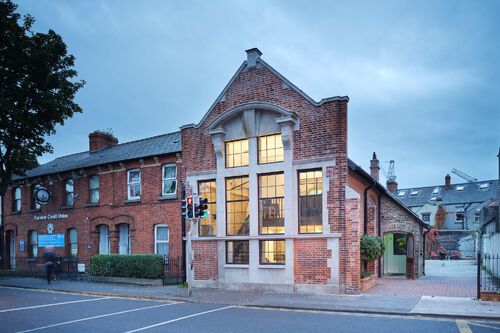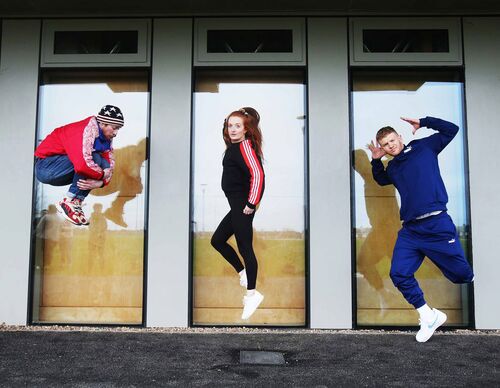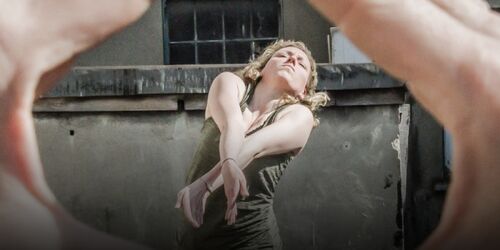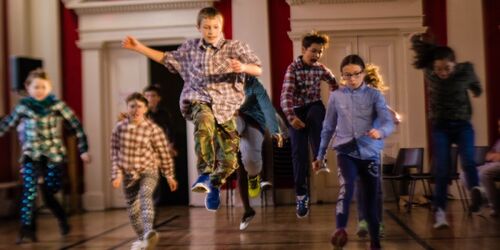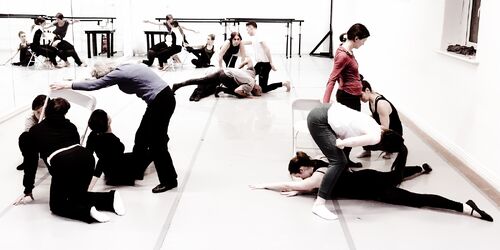Building Spaces of Possibility
Led by Muirne Bloomer & Dr. Niamh Shaw
In partnership with British Council Ireland & Science Gallery Dublin
Supported by Science Foundation Ireland
Dance meets science in BUILDING SPACES OF POSSIBILITY, which kicked off with a series of pop-up events in public spaces in central Dublin as part of Science Week 2021.
This project from CoisCéim Broadreach in partnership with British Council Ireland & Science Gallery at Trinity College Dublin, is led by science communicator Dr Niamh Shaw and choreographer Muirne Bloomer. It aims to put climate science into plain words and dream up new possibilities together.
Over #ScienceWeek, to launch the initiative we connected with people as part of their daily routines with a series of conversations and choreographies on and around a big green sofa in everyday places – to explore ways to live and thrive in greater harmony with our surroundings.
Browse below to see what happened:
POPPING UP “ON THE SOFA” IN PUBLIC SPACES…
Dr Niamh Shaw was in conversation in everyday places across Dublin with re-use & recycle expert, Nathan Wheeler, visual artist, Sueann Moore, and special guests including:
09 Nov 2021 | 3pm | Stephens Green Shopping Centre | Special Guest: Paul Martin 10 Nov 2021 | 3pm | Busáras | Special Guest: Eanna ni Lamhna
13 Nov 2021 | 1pm | Science Gallery at Trinity College Dublin | Special Online Guests: Matthew Needham (UK) & Justine Cooper (IRL)
…AND IN THE WINDOWS
On 13 November 2021, Science Gallery Dublin was home to IN THE WINDOWS, a series of live dance performances by Ben Sullivan and Niamh McPhillips. Choreographed by Muirne Bloomer and the dancers, the programme also featured the premiere and screenings of their short film, LOOK AROUND A SEE and STOPWATCH by visual artist Nikolas Ryan (see below).
On the Sofa | Contributors Gallery
PAUL MARTIN
With nine Gold medals for show gardens to date, Paul Martin is regarded as one of Ireland’s leading garden designers. Having spent the majority of his training with skilled horticulturalists specialised in plant physiology, he has established himself as an innovator in landscaping.
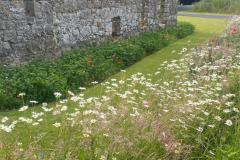
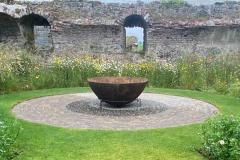
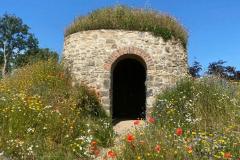
MATTHEW NEEDHAM
Matthew Needham is a multi-award-winning British/Czech designer and artist known for his approach to upcycling and contributions to sustainability within the British fashion industry.
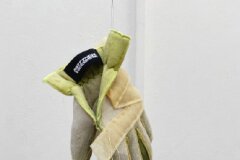

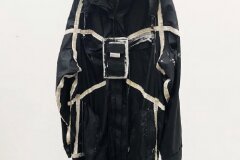
NATHAN WHEELER
Nathan Wheeler is a generalist maker – from leatherworking, electronics, model making and enormous comic con costumes to more recently upcycling and restoration work.
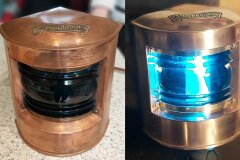
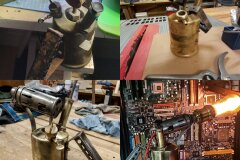
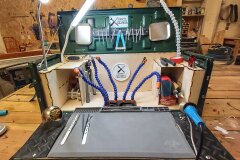
SUEANN MOORE
Sueann Moore is a visual artist from Ringsend who works with found materials to explore ways to live and thrive in greater harmony with our surroundings.
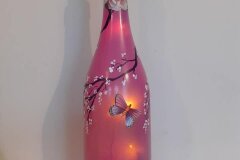
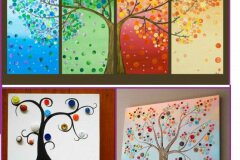
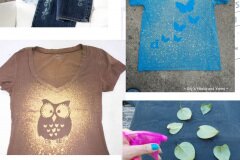
STOPWATCH
RIDICULOUS NIKOLAS
LOOK AROUND AND SEE
MUIRNE BLOOMER with NIAMH MCPHILLIPS & BEN SULLIVAN
CUPBOARD COSMETICS | Justine Cooper
NATURAL DEODORANT
APHRODITE CHOCOLATE FACIAL
More About the Project
“Humans are capable of a unique trick: creating realities by first imagining them, by experiencing them in their minds. When Martin Luther King said “I have a dream”, he was inviting others to dream it with him. Once a dream becomes shared in that way, current reality gets measured against it and then modified towards it. As soon as we sense the possibility of a more desirable world, we begin behaving differently, as though that world is starting to come into existence, as though, in our minds at least, we’re already there. The dream becomes an invisible force which pulls us forward. By this process it starts to come true. The act of imagining something makes it real.”
– Brian Eno (Musician)
Flash floods, dead bees, smelly air – why should I care? Climate change is affecting us all but what exactly is it – this new project aims to put it in plain words. BUILDING SPACES OF POSSIBILITY is highly targeted at young people between the ages of 16-22 who have other things on their minds.
As an intelligent species, humans are always seeking answers to the bigger questions such as who are we? And why are we here? But often, we look for answers with ourselves at the centre. We forget that people are not in charge and the universe continues with or without us. We need to work in harmony with our surroundings, not try to dominate them. Everything in our small corner of the universe is driven by keeping balance. On Earth, we see this everyday, in the seasons, our orbit about the Sun, day and night, the natural world (the water cycle, nitrogen cycle and carbon cycle). Our ancestors knew their place within these cycles of nature. In recent times, however, in the name of progress, this need for equilibrium has been forgotten or ignored, forcing our planet out of kilter.
As Niamh Shaw Writes:
“In my work as a science communicator and artist, I have found again and again that we assume knowledge about what people do and don’t know around climate change. Simply parachuting into a project with a generic approach will not close the gap between awareness and action nor bring about lasting behavioural change. In order for there to be a tangible shift in understanding around this topic, we have to ensure that people claim the knowledge as their own, and can articulate it in a personal way. Together we need to make sense of this dense and complex topic and make it relevant to the everyday. And to do this, trusting and meaningful connections are fundamental. Then and only then do we talk about action”.
Credits
Partners
Science Week 2021
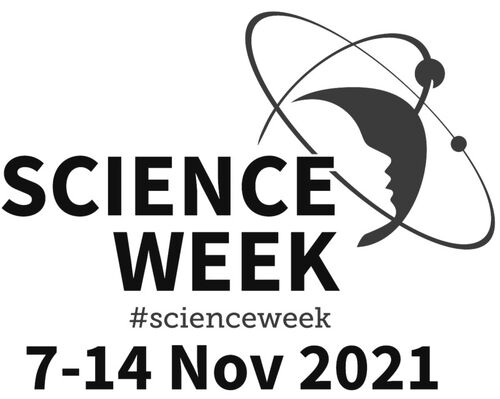
British Council Ireland

The British Council is the UK’s international organisation for educational opportunities and cultural relations. We are on the ground in six continents and over 110 countries, bringing international opportunity to life, every day. Each year we work with and connect millions of people, sharing our culture and the UK’s most attractive assets: Education, Society and Science, the Arts and English.
Science and research play a critical role in our work, helping citizens and institutions contribute to a more inclusive, open and prosperous world and connecting local issues to global themes. Public engagement, in particular, is an increasingly important aspect of science and the British Council has extensive experience and expertise in developing initiatives and partnerships which build on the UK’s reputation for excellence in this area. We link scientists globally and encourage grass-roots discussion of science and sustainability issues, support researchers in showcasing their work internationally, work with and develop the brightest new talent in science communication across the globe and engage the public directly with scientific subjects that affect our society. Specific examples include:
FAMELAB INTERNATIONAL: A global competition to discover and nurture the new faces of science communication and support them to share their passion for science with the public – 35+ different countries up to 2021 with 29 taking part in 2020; 370+ partner organisations which have included NASA and CERN; 12162 Facebook page likes; 13800+ scientists and engineers in total have taken part; a total audience of 35600 engaged face-to-face in 2019-20; 738k video views on YouTube and almost 6k channel subscribers.
FAMELAB IRELAND 2014-2021: Dynamic multi-sectoral partnership involving Newstalk 106-108fm, Science Gallery Dublin, Dublin City University, NUI Galway, Royal College of Surgeons in Ireland, Trinity College Dublin, University College Dublin, University College Cork, University of Limerick, Teagasc, Henkel Ireland Ltd and CPL Plc, multiple SFI research centres and several other STEM organisations from across Ireland (25+ partners in total). Impact up to 2020 competition includes: 680+ competition entries all receiving some level of sci-comms training; communication master class weekend for approximately 80+ Ireland finalists; FameLab Ireland finals 1350+ live audience and Youtube films estimated 25700+ viewers; other FameLab public engagement events involving a FameLab alumni network of 80+ and reaching 18730+ direct participants to date; FameLab Ireland website/Twitter channels, estimated 13250+ unique website visitors and 2945 Twitter followers; media campaign 11.9 million+ anticipated reach; and of course, FameLab national winners representing Ireland at the international finals annually, Cheltenham Science Festival, UK – resulting in excellent exposure for Irish science nationally and internationally. FameLab has also led to British Council and Ireland alumni involvement in a much wider programme of STEM public engagement/education activities nationally and internationally. These include Science Week Ireland, SCI:COM Conference, Scientifically Speaking training, Festival of Curiosity, House of STEM, EU Researchers’ Night, Sense About Science, SmartFutures, SciFest, Pint of Science Ireland, Next Gen Fem podcast, Bright Club Ireland, NI Science Festival, Electric Picnic, Hall of FameLab UK, Sofia/Athens Science Festivals, FameLab International Echoes, Czech Republic, School Lab France, STEAM In Youth and others.
Other British Council activities that connect arts and science include:
THE CLIMATE CONNECTION: To support COP26 ambitions, this diverse programme brings people around the world together to meet the challenges of climate change. Through arts and culture, education and the English language, it is about sharing ideas, developing innovative climate solutions, and taking positive action together (https://www.britishcouncil.org/climate-connection)
BAKING IN SPACE 2018-20: An interactive, fun family event which explores the surprising connections between everyday bakes and the extraordinary engineering that helps keep astronauts alive in space. Partnerships with European Space Agency, EIRSAT-1, Yakult Ltd, NCCWN, UCC, NUIG, University of Limerick, Cork, Athlone and Midlands Science Festivals, Galway Science and Technology Festival, I-Lofar, Andrew Smyth (aerospace engineer and Great British Bake-Off finalist), and Dr Niamh Shaw (scientist, performer and space explorer). Six in-person sold-out events at Smock Alley Theatre, Dublin; Kino, Cork; and Black Box, Galway, as well as four online events (1600+ audience) as part of Science Week.
ART IN MIND 2017-18: Four Science Week Ireland events where the Arts and Science interconnected to explore how different art forms impact our minds and how science impacts the artistic process. All events, with the National Gallery of Ireland, Butler Gallery Kilkenny and Highlanes Gallery Drogheda were sold-out and involved diverse contributors, discussion, experiments and performance.
SHAKESPEARE LIVES IN SCIENCE: A range of science-based blogs, feature articles, public events, workshops and other activities across the globe to celebrate Shakespeare’s work on the 400th anniversary of his death in 2016. Included two events in Dublin/Monaghan as part of Science Week Ireland – Can Shakespeare Make You Fall in Love?
CAFÉ SCIENTIFIQUES: Engages a wider audience with science and the impact it has on society through informal debate on topical issues. The British Council has run Café Scientifique events for several years in over 40 countries.
INTERNATIONAL SCIENCE FESTIVALS: We have managed science festivals with local partners in several countries (Eg, Bulgaria, Greece, Hong Kong) and work with them and UK experts/UK Science Festival Networks to support public engagement with science around the world.
RESEARCHER CONNECT: A series of short interactive learning modules for researchers at any stage of their career and from any academic discipline. It is a professional development course that focuses on the development of excellent communication skills in international, multi-cultural contexts as highlighted by Vitae in the Researcher Development Framework.
EURAXESS: An online hub providing support, advice and funding for researchers to collaborate and share knowledge across the world. It works in three key areas: jobs, services and rights, and is completely free to researchers who are interested in working abroad.
NEWTON FUND: A UK government initiative which aims to develop science and innovation partnerships that promote the economic development and welfare of developing countries. It is delivered through 15 UK delivery partners in collaboration with 16 partner countries. Relevant strands include: Professional Development and Engagement (building the skills of researchers in areas such as communication and research management, as well as supporting community and policymaker engagement) and STEM Education (supporting STEM education through a variety of mechanisms such as the development of STEM teaching resources, or piloting novel STEM initiatives).
VOICES MAGAZINE: A global digital newsletter highlighting UK/international science that’s shaping society and bringing a new dimension to everyday life, including latest opportunities, articles, and MOOC course alerts.
Science Gallery Dublin

In 2008, a forgotten corner of Trinity College Dublin was transformed into a living experiment called Science Gallery Dublin. Through a cutting-edge programme that ignites creativity and discovery where science and art collide, Science Gallery Dublin encourages young people to learn through their interests.
Since its opening, more than three million visitors to the non-profit gallery have experienced 43 unique exhibitions, ranging from design and violence to light and love, and from contagion and biomimicry to the futures of the human species and play. Science Gallery Dublin develops an ever-changing programme of exhibitions and events fuelled by the expertise of scientists, researchers, students, artists, designers, inventors, creative thinkers and entrepreneurs. The focus is on providing programmes and experiences that allow visitors to participate and facilitate social connections, always providing an element of surprise. CLICK HERE to find out more.
IN THESE STRANGE TIMES, Science Gallery Dublin’s current programme highlights the organisations ability to experiment with new ways for people to explores and discuss science and art across multiple media.
Science Gallery Dublin is part of the Global Science Gallery Network pioneered by Trinity College Dublin.
SCIENCE GALLERY NETWORK | The Science Gallery Network consists of leading universities united around a singular mission: to ignite creativity and discovery where science and art collide. The nine galleries of the Science Gallery Network are committed to bringing science, art, technology and design together to deliver world-class educational and cultural experiences for young people. Transdisciplinary approaches to education and innovation are fundamental to future-proof the university; sparking catalytic conversations, connections and collaborations across networks is instrumental to develop and implement these approaches. Science Gallery Network programmes feature emerging research and ideas from the worlds of science, art, design and technology, presented in connective, participative, and surprising ways. To date, over 3.6 million visitors have engaged with the galleries on-site. Hundreds of scientists, artists and researchers have presented ground-breaking work through our exhibitions and events. Eight Science Gallery travelling exhibitions have toured to twenty-four venues all over the world, and have been visited by over 1.7 million people.
YOUTH SYMPOSIUM | The Youth Symposium is the annual gathering of advisors, mediators, staff and core audiences of Science Gallery. Together, these communities create the blueprint for the civic role of Science Gallery: they are the ones who literally give meaning to our exhibitions and programs.
The Youth Symposium participants trust Science Gallery to take action on pressing issues that include climate crisis, mental health, ethics and technology. They trust Science Gallery to develop the Mediator model into a powerful system to reimagine what the university can offer to students and citizens at large as a platform to learn, work and grow professionally. And they trust Science Gallery to be a truly global network. The gallery space is too small for them: the Youth Symposium participants want Science Gallery to achieve an impact that is much larger than the walls of the gallery. They dare to look far beyond where we can see. CLICK HERE for more.
